عنوان المقال عربي
فعالية برنامج إرشادي انتقائي في خفض مستوى الذات الزائفة لدى طلبة الجامعة
Files
Download Full Text (3.1 MB)
Abstract
The study aimed to test the effectiveness of a counseling program based on selective counseling to reduce the level of the false self. The study sample was randomly divided into two groups: an experimental group and a control group. The 14 participants in the experimental group underwent a counseling program consisting of 10 sessions, for a period of five weeks. While the 14 participants in the control group were not exposed to any training. The pseudo-self scale was applied as a pre-measurement to ensure the equivalence of the two groups, and it was also applied as a post-measurement to identify the impact of the program, and to process the results and verify the validity of the hypotheses, non-parametric statistical methods were used (Mann-Whitney test and Wilcoxon test). The results indicated that there were statistically significant differences between the mean scores of the experimental and control groups in the post application of the false self scale in the direction of the experimental group, which indicates the effectiveness of the counseling program in reducing the false self. In light of the research results, a set of recommendations and suggestions were developed.
Keywords
Counseling program, false self, experimental design, counseling theories, university students.
Recommended Citation
Hussein, Thaer Sakban
(2023)
"The effectiveness of a selective counseling program in reducing the level of false self of university students,"
Uruk Journal of Human Sciences: Vol. 15:
Iss.
4, Article 31.
Available at:
https://muthuruk.mu.edu.iq/journal/vol15/iss4/31
Publication Date
January 2023




